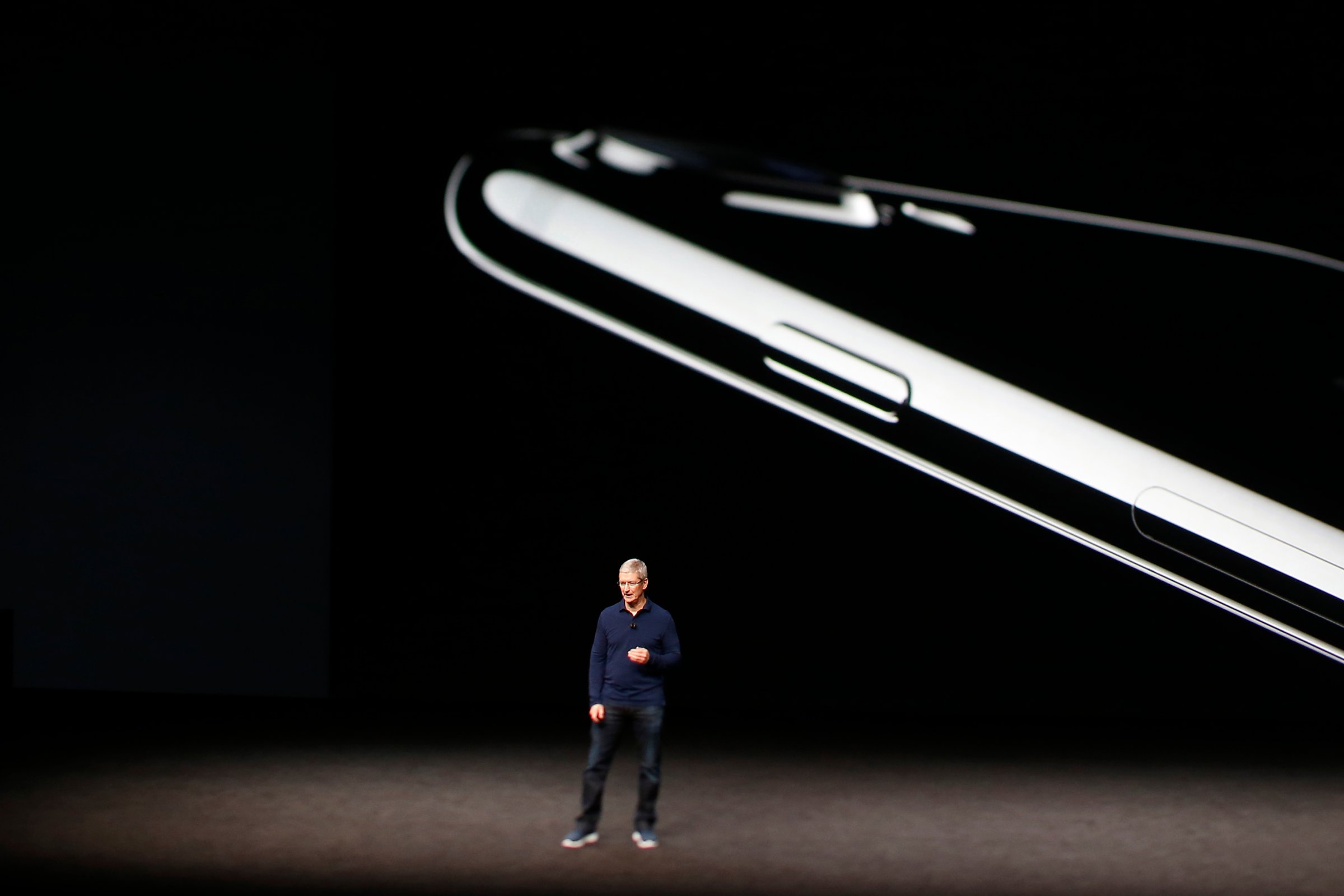
The iPhone seems to confound Apple’s investors as much as it delights its customers.
Four years ago, before Apple released the iPhone 5, the stock was up 73% for the year. But thanks to overheated expectations, once the phone was released the stock began a slide that erased more than 40% its value over the next nine months. Two years ago, the opposite happened: The iPhone 6 defied skepticism that Apple’s best years were behind it, propelling the stock to its record high of $134 a share in April 2015.
So far, the release of the iPhone 7 is shaping up to be a repeat of the iPhone 6. Apple unveiled the phone at an event that elicited shrugs from many observers. Then the company freaked out investors when it said wouldn’t release first-weekend sales figures for the iPhone 7. The company explained that it expected the new phones to sell out early, but the market took it as a sign that Apple may be concealing low sales figures. And Apple’s stock dropped 5% late last week.
This week brought an unexpected reversal. Since its opening price Monday, Apple’s stock has risen steadily, in what CNBC called the stock’s strongest short-term rally since 2009. Apple’s stock has rallied 12.4% in four straight trading sessions, a strong performance for any company, let alone one of Apple’s scale. That rally has added $71 billion to its market value.
But wait a minute. Apple said last week it expected the iPhone to sell out, and the headlines this week have only confirmed this. No, Apple didn’t release the actual sales figures for the weekend’s iPhone 7 sales, but Sprint and T-Mobile both said the new iPhones were selling three or four times stronger than earlier models. Later on, AT&T gave a less enthusiastic report, saying that volumes of the iPhone 7 were higher, while Verizon said its volumes were normal.
In other words, this is a decent first week for the iPhone 7, but not necessarily spectacular. Everyone knew they would sell out fast, if for no other reason than Apple warned us about it. So why is Apple’s stock having its strongest week in years? Here are a few reasons:
The tide of news is turning in Apple’s favor. Not long ago, Apple was facing a spate of bad news, notably the tax complications it’s facing in Ireland. Suddenly, good news is coming: Carriers may be pushing the iPhone7 with what one analyst called “free iPhone promotions that effectively include a phone subsidy.” That, and surveys suggesting strong consumer demand, bode well for strong sales for several months. Meanwhile, Samsung, a key rival, is facing its own problems with spontaneous exploding batteries.
No one wants to be left out of an Apple rally. As much as it hurts for an investor to buy a stock and see it decline, it still stings more to miss out when a stock rallies. And there are a lot of big investors who are missing out this week. According to Bloomberg, 295 institutional investors sold out of their Apple positions entirely last quarter, missing out on the 20% rise in Apple share prices since late June. Some of them may be scrambling back in.
And shorting Apple seems especially dangerous right now. Shorting – or selling borrowed shares in hopes of making a profit when a stock drops – is appealing if Apple’s best days are indeed behind it. But the memory of the post iPhone 6 rally looms large in the memories of Apple bears, and some may be rushing to buy back shares to avoid future losses.
Apple is cheap. At the beginning of this week, Apple was trading at 12 times earnings. Even after this week’s rally, it’s at 13.5 times earnings, compared to a ratio of 24.6 for the S&P 500 Index. And keep in mind, in fiscal 2015 – that is, the year after the release of the iPhone 6 – Apple’s revenue grew by 28%.
Apple is a safe haven. And the market is in short supply of safe havens right now. In fact, the overall stock market is looking rather creaky and uncertain, amid expectations that years of record-low interest rates around the world have done all they can do to generate growth. Those concerns have driven down many stocks, but not Apple. By some counts, Apple’s rally this week is pretty much the main thing holding up the S&P 500.
Apple still has its share of concerns around it. The Watch may not live up to what Apple hopes it will be, and there are signs that longer-term initiatives like an Apple car may be hitting speedbumps. But the main focus right now is the iPhone, which makes up nearly two thirds of the company’s revenue. Sales aren’t as bad as they looked a week ago, and, over the past 15 years at least, it has rarely paid for long to bet against Apple.
More Must-Reads from TIME
- Donald Trump Is TIME's 2024 Person of the Year
- Why We Chose Trump as Person of the Year
- Is Intermittent Fasting Good or Bad for You?
- The 100 Must-Read Books of 2024
- The 20 Best Christmas TV Episodes
- Column: If Optimism Feels Ridiculous Now, Try Hope
- The Future of Climate Action Is Trade Policy
- Merle Bombardieri Is Helping People Make the Baby Decision
Contact us at letters@time.com